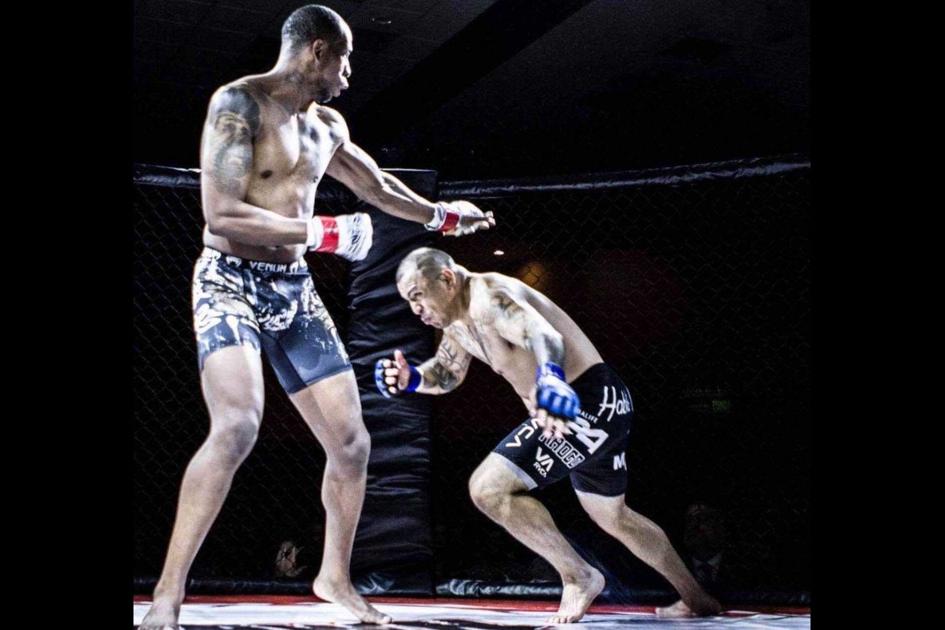
The Boxing & MMA (Mixed Martial Arts) Commission has been cracking down on unsanctioned combat sporting events in the West Valley and throughout the state since it was established under the Arizona Department of Gaming in 2015.
The commission has imposed rules and regulations for each event, setting guidelines that ensure the safety of all competitors and spectators.
However, there are still instances where individuals attempt to hold events that do not follow the guidelines set forth by the commission. These unsanctioned events often lead to charges with the possibility of jail time and hefty fines.
“There are strict requirements in place that are designed to protect the health and safety of participants and the public,” said Francisco Meneses, executive director of the Boxing & MMA Commission. “They are highly regulated because a careful oversight is necessary to ensure the fair competition, impartial result and the overall safety of the combatants and the public.
“Occasionally, you have individuals that do not follow those rules and don’t follow the health and safety standards. That is the case with the three events in Glendale, Phoenix and Mesa.”
From September 2018 to May 2019, three unsanctioned events allegedly hosted by the same two individuals took place.
Roland Sierra and Todd Whitmoyer, both of whom were previously licensed with the Boxing & MMA Commission, have been charged with six class-2 misdemeanors for hosting the illegal fights. According to the ADG, class-2 misdemeanors in Arizona can carry a maximum fine of $750 and four months in jail, per charge.
The first fight allegedly took place on September 15 at Cortez High School in Phoenix. The second allegedly took place on September 26 at the Elks Lodge in Glendale. The most recent fight allegedly took place on May 22 at Maya New York Pizza Bar & Grill in Mesa.
According to the incident report provided by the ADG, fights in various formats took place at each event, including boxing, kickboxing and wrestling.
“We found at these events there was a weight spread that we would normally never allow,” Meneses said. “In one instance, there was a fighter that was 185 pounds going up against another that was 215 pounds. That’s a large spread and it gives one fighter potentially a greater advantage.”
For an event to become sanctioned by the Boxing & MMA Commission, an individual looking to host the event must first become a licensed promoter.
The commission runs a background check on each individual and makes sure they are financially able to provide the additional resources for each event they host.
Under the regulations set by the Boxing & MMA Commission, every promoter is required to provide health and life insurance for each fighter. Additionally, an ambulance, paramedics, doctor and security have to be on scene for the event.
Prior to entering the ring, every fighter is required to have an eye and physical exam by a physician in Arizona or the United States. They must also have completed a combative blood trio panel to ensure they do not have any infectious diseases.
“All of that is provided to the commission before the fighter steps into the ring or cage to ensure they are in good health,” Meneses said.
“Before they fight, the ringside physician examines them one more time. After the fight, they are looked at by the physician once again to make sure there are not any other unseen injuries.”
The commission staffs each event with licensed officials and judges. Members of the commission are also present to ensure everything runs according to protocol.
Meneses estimated the commission sanctions close to 30 professional and amateur combat sporting events per year, several of which involve fighters from clubs and gyms across the East Valley.
Since he joined the Boxing & MMA Commission in April 2018, Meneses has seen a growth in the number of people looking to become promoters of sanctioned events here in Arizona and across the country.
With the sport’s growth in popularity, however, comes more individuals looking to host illegal events for entertainment purposes, and at times to potentially make a quick buck.
But Meneses takes pride in his ability to help put an end to unsanctioned events and help combat sports in Arizona continue to grow.
“When you are doing it like this, they are avoiding some of the costs to make more of a profit,” Meneses said. “However, they are losing that health and safety standard. It isn’t worth it; it’s not safe for the fighter or the public.
“We want Arizona to be one of the top states for this sport as a spectator, competitor and someone associated in this industry.”
